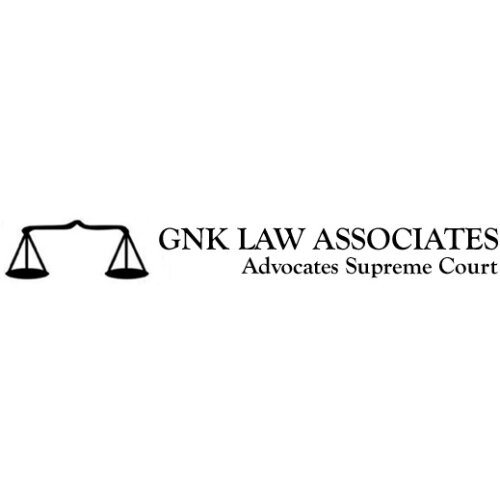Best Employment & Labor Lawyers in Delhi
Share your needs with us, get contacted by law firms.
Free. Takes 2 min.
List of the best lawyers in Delhi, India
India Employment & Labor Legal Questions answered by Lawyers
Browse our 1 legal question about Employment & Labor in India and read the lawyer answers, or ask your own questions for free.
- Civil case regarding money recovery for break of corporate employment bond
- I received legal summons from my previous employment for the recovery of money of ₹3,90,000. So I want to defend it
-
Lawyer answer by Ishan Ganguly
Identify technical flaws in the company's summons. Draft a strong Written Statement. Negotiate an out-of-court settlement if the company's case is strong (which could save you interest and legal costs) Immediate Actions Check the Timeline: Look at the summons for...
Read full answer
About Employment & Labor Law in Delhi, India
Employment and labor laws in Delhi, India, are designed to regulate the relationship between employers and employees, ensuring fair treatment, safe working conditions, and equitable compensation for workers. These laws cover various aspects such as minimum wages, working hours, discrimination, workplace safety, and dispute resolution. In Delhi, labor laws are influenced by both central and state legislation, meaning that businesses and employees must be familiar with a range of legal provisions. Understanding these laws is crucial for both employers and employees to ensure compliance and protection of rights.
Why You May Need a Lawyer
There are several common situations in which individuals may find it beneficial to seek legal advice in employment and labor matters:
Employment Contracts: Understanding and negotiating the terms of an employment contract can be complex, and a lawyer can provide guidance to ensure fair and lawful terms.
Wrongful Termination: If you feel that your employment has been terminated unfairly or in violation of a contract, legal assistance can help you seek justice.
Workplace Discrimination or Harassment: Legal counsel can be crucial if you are dealing with any form of harassment or discrimination in the workplace.
Wage Disputes: A lawyer can help resolve issues related to unpaid wages or violations of minimum wage laws.
Labor Disputes: For conflicts between employees and management, such as strikes or lockouts, legal intervention may be necessary to mediate and resolve issues.
Local Laws Overview
The employment and labor law landscape in Delhi includes several key pieces of legislation that focus on protecting worker rights and ensuring fair labor practices. Some of the significant laws include:
The Industrial Disputes Act, 1947: Governs the resolution of industrial disputes, layoffs, retrenchments, and conditions for strikes and lockouts.
The Factories Act, 1948: Ensures the welfare of workers in factories, covering health, safety, working hours, and employment conditions.
The Minimum Wages Act, 1948: Provides for the determination of minimum wages in certain sectors to prevent exploitation of labor through underpayment.
The Employees' Provident Funds and Miscellaneous Provisions Act, 1952: Ensures retirement savings for employees through contributions to provident funds.
The Payment of Bonus Act, 1965: Details the requirements for annual bonuses payable to employees in certain establishments.
Frequently Asked Questions
What are the working hour regulations in Delhi?
The general maximum limit for working hours is 48 hours per week, with employers expected to comply with breaks and overtime provisions as outlined by law.
Can an employer terminate an employee without notice in Delhi?
No, employers are generally required to provide notice or payment in lieu of notice before termination, except in cases of misconduct.
What recourse does an employee have if they face workplace discrimination?
Employees can file a complaint with the local labor office or seek legal counsel to address discrimination through the appropriate channels.
How is the minimum wage determined in Delhi?
Minimum wage rates in Delhi are determined by the local government and are revised periodically based on economic factors.
Are part-time workers entitled to employment benefits?
Part-time workers may be entitled to certain benefits depending on the terms of their employment contract and the applicable laws.
What constitutes wrongful termination in Delhi?
Wrongful termination refers to dismissals that breach contract terms, violate statutory provisions, or are based on discriminatory reasons.
Is it mandatory for employers to provide maternity leave?
Yes, employers are required to provide maternity leave as per the Maternity Benefit Act, 1961, which mandates paid leave for eligible female employees.
How can an employee resolve a wage dispute?
An employee can raise the issue with their employer, file a complaint with the labor department, or seek legal advice to resolve wage disputes.
What is the role of labor unions in Delhi?
Labor unions represent the collective interests of their members in negotiations with employers regarding wages, working conditions, and other employment terms.
Are there specific protections for contract workers in Delhi?
Yes, contract workers are protected under specific laws ensuring fair wages, work conditions, and safety in the workplace.
Additional Resources
Here are some resources and organizations that may be useful for individuals seeking guidance on employment and labor laws in Delhi:
The Labour Department, Government of Delhi: Provides guidance and oversight on labor issues and enforces labor laws.
The Delhi State Legal Services Authority: Offers free legal assistance to those unable to afford legal representation.
Workers' Union Offices: Provide support and representation for worker rights and issues.
Next Steps
If you require legal assistance in employment and labor matters, consider the following steps:
Consultation: Schedule a consultation with a lawyer who specializes in employment and labor law to discuss your situation.
Gather Documentation: Collect all relevant documents such as employment contracts, pay slips, correspondence, and any other evidence related to your issue.
Legal Representation: Consider engaging a lawyer to represent your interests, especially in complex cases involving litigation or negotiation.
Stay Informed: Keep yourself updated on any changes to employment and labor laws that may affect your rights and obligations.
Lawzana helps you find the best lawyers and law firms in Delhi through a curated and pre-screened list of qualified legal professionals. Our platform offers rankings and detailed profiles of attorneys and law firms, allowing you to compare based on practice areas, including Employment & Labor, experience, and client feedback.
Each profile includes a description of the firm's areas of practice, client reviews, team members and partners, year of establishment, spoken languages, office locations, contact information, social media presence, and any published articles or resources. Most firms on our platform speak English and are experienced in both local and international legal matters.
Get a quote from top-rated law firms in Delhi, India — quickly, securely, and without unnecessary hassle.
Disclaimer:
The information provided on this page is for general informational purposes only and does not constitute legal advice. While we strive to ensure the accuracy and relevance of the content, legal information may change over time, and interpretations of the law can vary. You should always consult with a qualified legal professional for advice specific to your situation.
We disclaim all liability for actions taken or not taken based on the content of this page. If you believe any information is incorrect or outdated, please contact us, and we will review and update it where appropriate.
Browse employment & labor law firms by service in Delhi, India
Delhi, India Attorneys in related practice areas.














